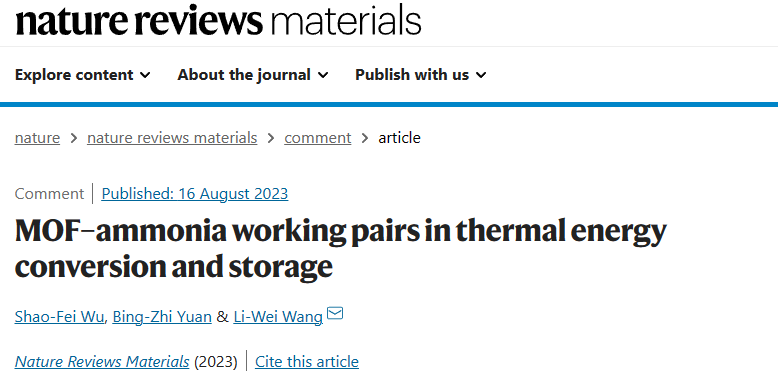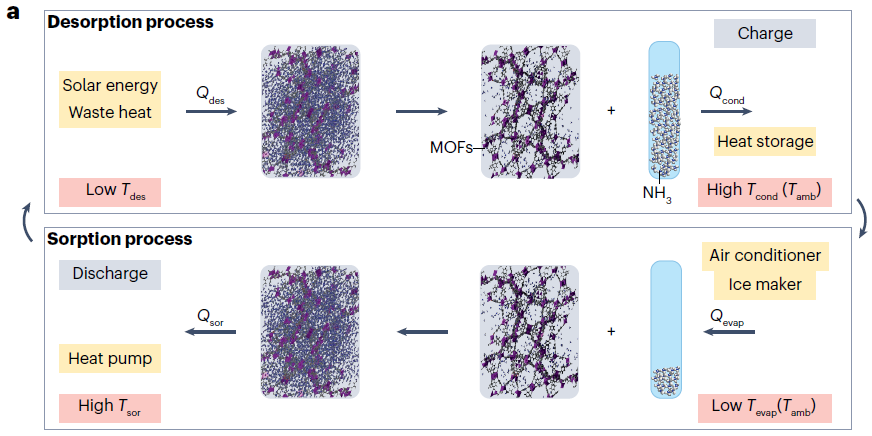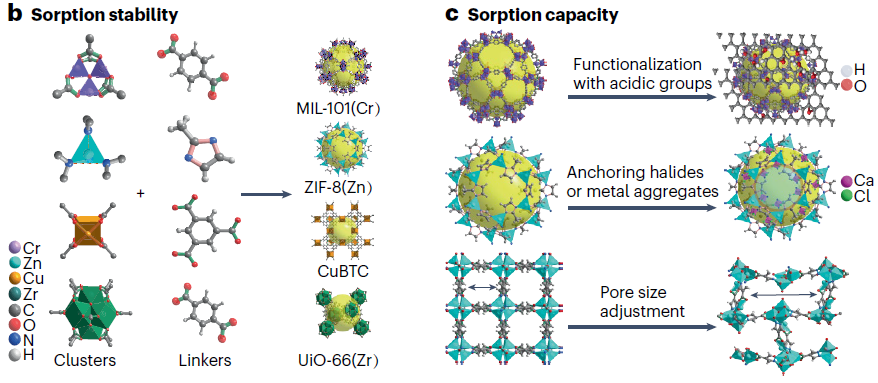
News

News
Recently, Prof. Li-Wei Wang’s research group from School of Mechanical Engineering published a paper entitled “MOF-ammonia working pairs in thermal energy conversion and storage” in Nature Reviews Materials (IF=83.5). This Comment paper highlighted the superiorities of metal-organic framework (MOF)–ammonia working pairs for adaptable thermal management under extreme climates, discussed strategies to design MOFs with high stability and ammonia sorption capacity, and prospected the way forward of these working pairs. The first author is Shao-Fei Wu, a PhD candidate, and the corresponding author is Prof. Li-Wei Wang.

Given the energy crisis and the increasing frequency of climate extremes, efficient heating and cooling technologies that do not rely on fossil fuels are urgently needed. The thermal-driven sorption refrigeration and thermal energy storage technology represent promising alternatives as they don’t necessitate the consumption of high-grade electrical energy, and the crux of this technology lies in the working pair composed of a sorbent and a sorbate. Ammonia as an environmentally friendly working fluid, features a wide temperature range, large latent heat of vaporization, etc., making it a potential sorbate of considerable interest. MOF-ammonia working pairs exhibit excellent temperature adaptability in extreme climates due to their controllable sorption potential and tunable host-guest interaction strength.

Schematic of MOF-ammonia working pairs for thermal energy conversion and storage in extreme climates
Metal-organic frameworks (MOFs), porous polymers with periodic crystal structures formed through the self-assembly of metal nodes and organic ligands, offer ultra-high specific surface areas, significant pore volumes, customizable structures, and outstanding sorption capabilities. As a result, they have found extensive applications in gas adsorption separation, catalysis, targeted medicine, sensing, and energy-related fields. However, it’s worth noting that the base stability and sorption capacity of MOFs in saturated ammonia atmospheres still fall short of meeting practical requirements in sorption systems. This paper underscores the advantages of MOF-ammonia working pairs for efficient refrigeration and thermal energy storage in extreme climates. It also delves into rational strategies and performance assessment methods for designing MOFs with heightened stability and superior sorption capacities. These insights offer fresh perspectives on addressing the challenges at hand and open up possibilities for versatile management of sustainable cooling, heating, and ammonia-based energy solutions.

Rational design strategies for high-stability and high-sorption capacity MOFs
This work was supported by the National Natural Science Foundation of China (NSFC) for the Distinguished Young Scholars.
Paper Link: https://doi.org/10.1038/s41578-023-00593-7

Shanghai Jiao Tong University
Address: 800 Dongchuan Road, Shanghai
200240